
It was a freezing night in June 1978 when a group of Sydney’s queer activists gathered at Taylor Square in the heart of Sydney’s gay district.
The Oxford Street bars were crowded on the ninth anniversary of New York's famous Stonewall Riots, which began the gay liberation movement in the United States. As the group marched down Oxford Street toward Hyde Park hundreds of people streamed out of the nearby gay bars to join.
"Out of the bars! Into the streets!" they chanted as the group of around 500 swelled to 2000 (much to the chagrin of the bar owners). Soon the crowd reached a police line at College Street.
The marchers had permission to be there, but police wanted the party to end. The keys to the van leading the march were confiscated and the music was shut off.
The marchers made their way - “Like the charging of the bulls” - up William Street towards Kings Cross. They didn’t want any trouble, they insist, but police met them at the other end anyway, and a brutal, bloody riot ensued.
“We thought it was going to be a parade. We thought it was going to be a good fun time, an opportunity to be out, to show who we were in terms of our sexuality, not to be hidden in some closet somewhere,” says Sandy Banks, one of the original 78ers - the name given to those first Mardi Gras marchers.
“I thought, ‘Let’s have some fun! Some fun! Little did I know about the trouble we’d end up in. It was just abominable.”
Banks says the police came from all sides and converged on the famous El Alemein fountain.
“It was then that it absolutely turned. The lights from the paddywagons. The lights from the houses in The Cross. It was just full on. The noise levels were overwhelming,” Sandy says. “There were the old tin garbage bins with the lids. So people were picking them up. They were flying across the streets. That was very, very dangerous.”
Sandy was arrested, picked up and thrown in the back of a paddy wagon. The bruises would be visible for weeks.
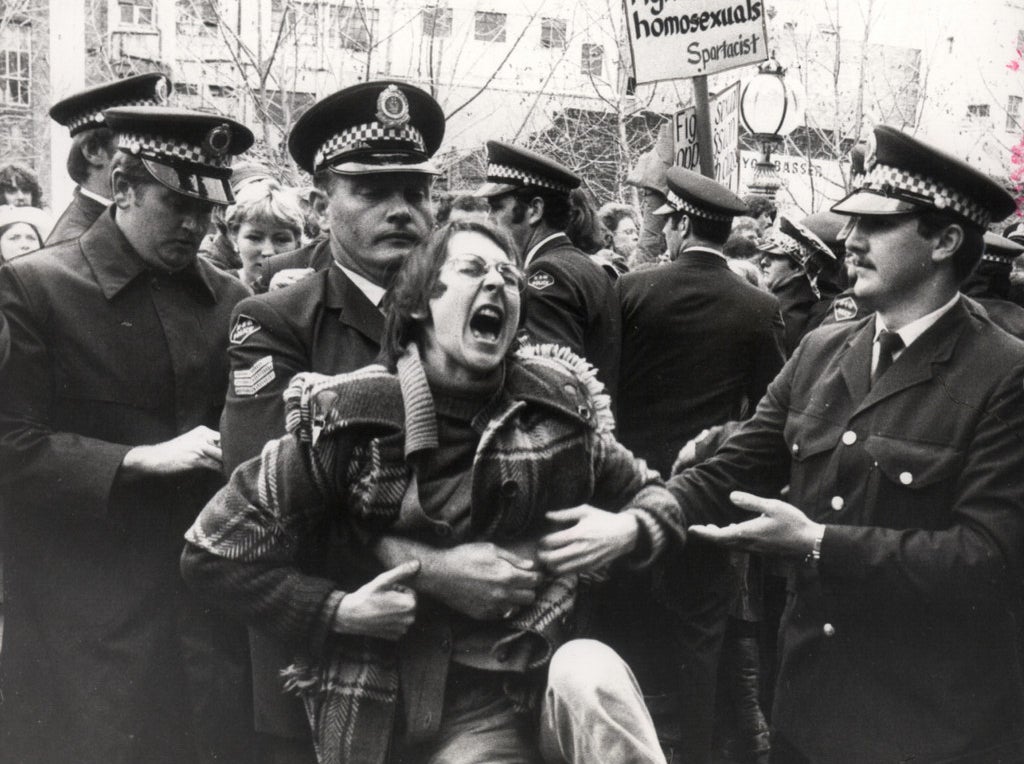
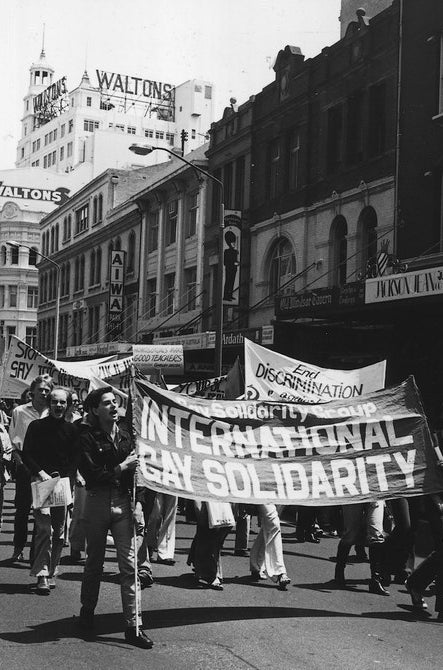
As man is carried away by police following the first Mardi Gras march. Pic: Fairfax.
They weren't yet marching for things like marriage equality, adoption rights or family benefits. Their aim was something much simpler but infinitely more important. They wanted to be recognised as people. Homosexual sex was still illegal in NSW and would remain so for another six years.
“It was the one opportunity we thought we had to actually say, ‘Here we are. We’re not afraid. We’re out here and this is who we are. And we’re not going to live our lives in a closet’,” Sandy says.
52 others were arrested alongside Sandy. They spent the night in the freezing old Darlinghurst jail as her fellow marchers gathered on the outside, chanting and screaming for the release of their friends.
“There were 20 of us shoulder-to-shoulder. That was comforting. There were two blankets thrown in and there was no bottled water or anything. There was a large tin of water for us to have. It was just primitive.”
Eventually charges were dropped against all but a few of the rioters.
A few days later the Sydney Morning Herald published the names, addresses and occupations of everyone arrested, in the full knowledge that many of them would lose their jobs after being publicly outed.
This week, Fairfax offered a qualified apology.
"In 1978, The Sydney Morning Herald reported the names, addresses and professions of people arrested during public protests to advance gay rights. The paper at the time was following the custom and practice of the day," SMH editor Darren Goodsir said.
"We acknowledge and apologise for the hurt and suffering that reporting caused. It would never happen today."
On Thursday, the NSW government formally said sorry for the way the marchers were treated.
“For the mistreatment you suffered, as a member of this parliament which oversaw the events of that night, I apologise and say I’m sorry," government MP Bruce Notley-Smith said as the 78ers watched on from the public gallery.
“The actions you took on June 24 1978, the pain and suffering meted out to you on that night and afterwards was undeserved. On that evening, you lit a flame under the gay rights movement in Sydney that burned its way to law reform and acceptance.”
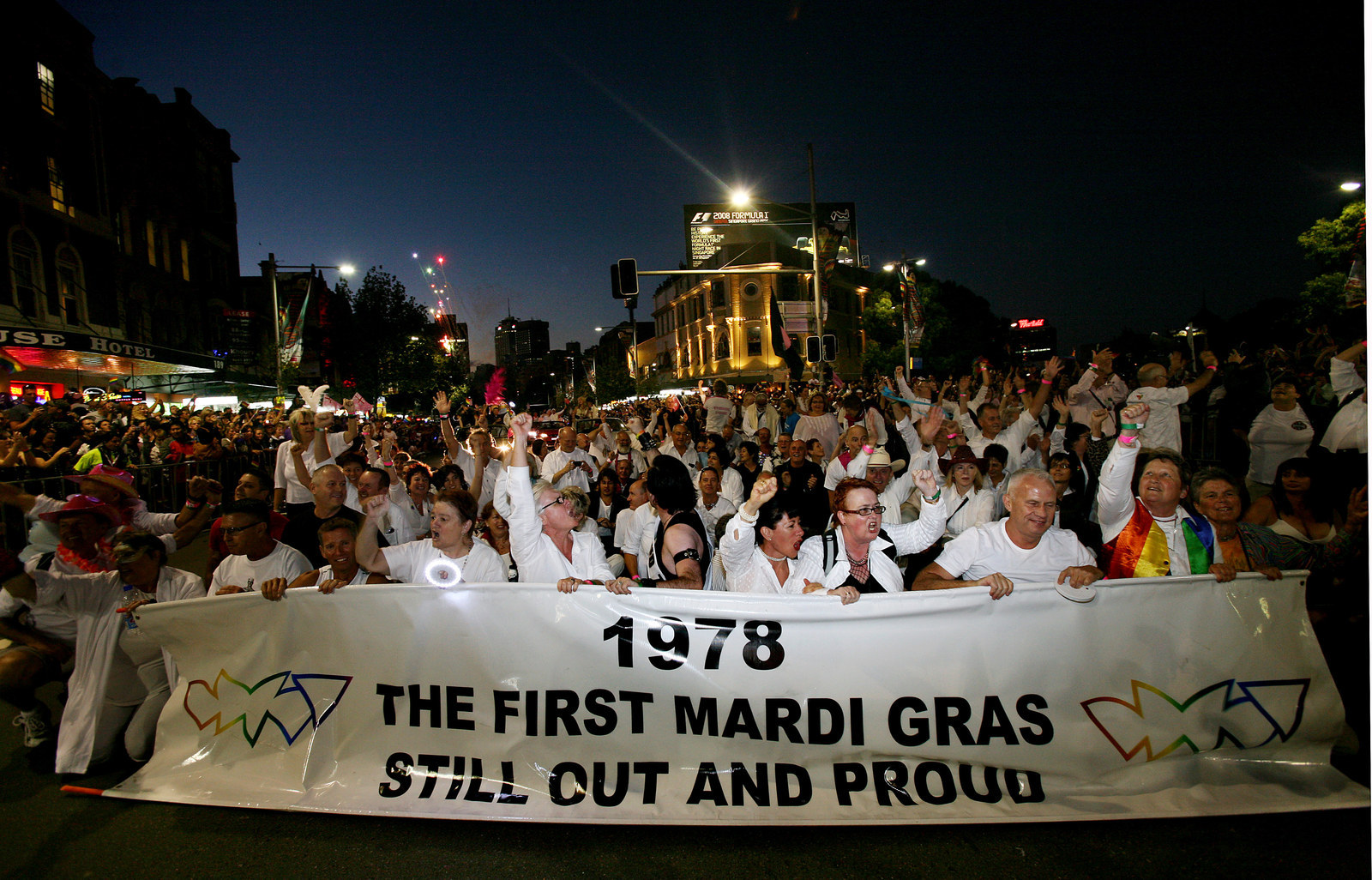
While the violence from that night has, thankfully, never been reenacted, the battles being fought by Australia's LGBT community are far from over.
From the AIDS crisis and police brutality of the 80s to the political activism of the 90s and today’s battle for marriage equality and transgender rights, Mardi Gras has always been an opportunity for people who have been pushed to the fringes of society to take centre stage for one night a year.
But that doesn't mean the parade hasn't faced significant criticism. At the peak of the AIDS crisis in the 80s, there were calls for the whole thing to be shut down. In 1994 the parade was broadcast on television for the first time, bringing the ABC its best ever Sunday night ratings and drawing a new level of national attention to the parade.
It's been through several identity crises. In the '90s there was anger over the inclusion of bisexual and heterosexual marchers, while in 2011 Mardi Gras organisers faced criticism for removing the words “Gay and Lesbian” from its name. After a backlash, the name was restored.
At times the parade has been criticised as either too commercial, too sexual or too far away from where it began - as a place for political activism and to agitate for LGBT advancement.
Last year conservative commentator Andrew Bolt was exasperated to learn that there was no anti-ISIS float in the parade.
Sandy Banks herself has done her best to avoid the march since that freezing night in 1978.
“I didn’t like the commercialism. I thought, ‘I have no interest here. I don’t have any common platform with what’s being promoted. And so therefore I’m not going to come’,” she says.
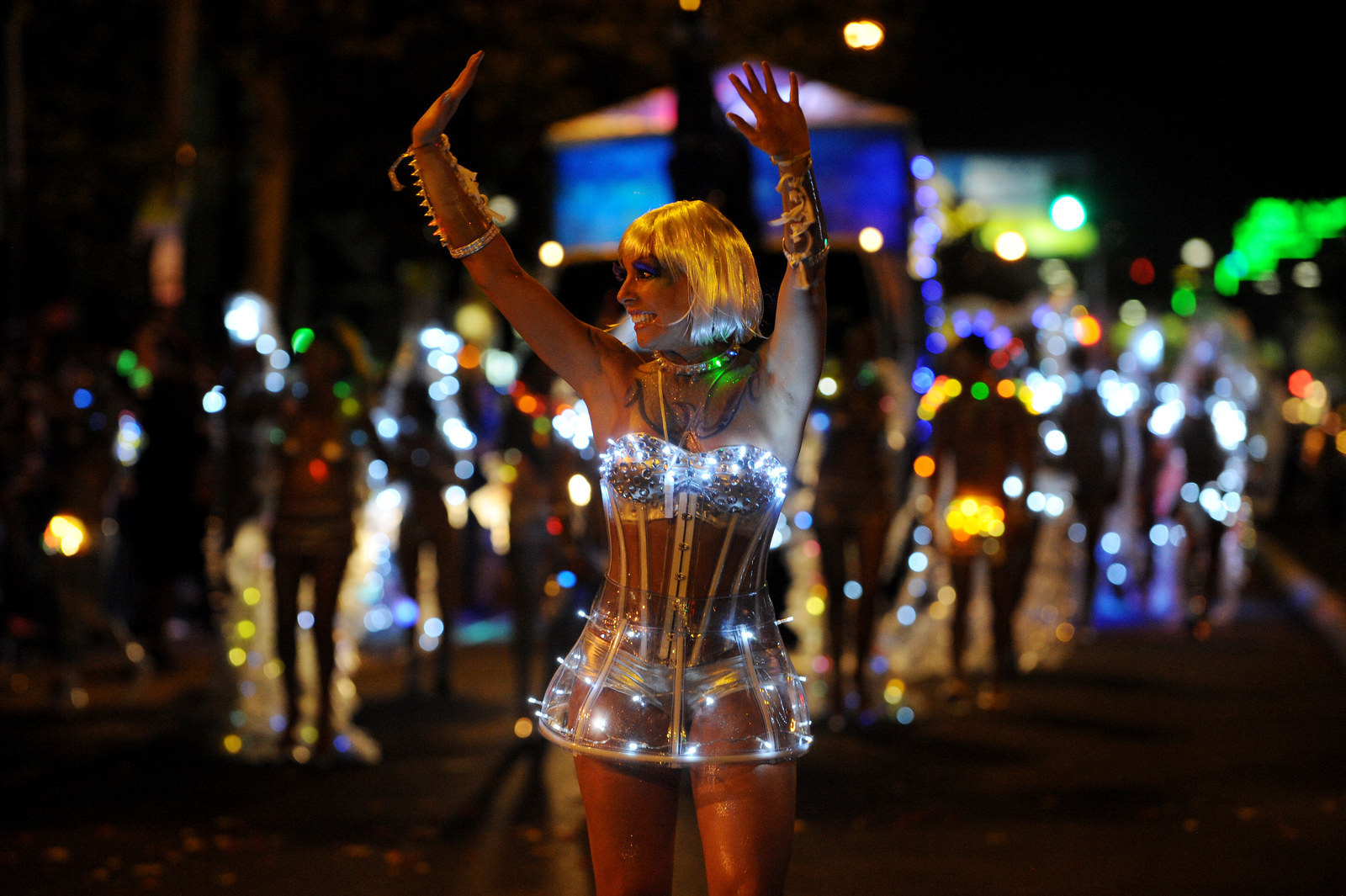
By far the loudest opposition to the parade - the yin to the 78ers yang - is NSW MP Reverend Fred Nile.
Perhaps Australia’s most famous religious conservative, the reverend has spent his life fighting against the forces of immorality - and since 1979, one of his favourite targets has been the Mardi Gras.
Mardi Gras, and Nile’s annual denunciations of the event, have become so intertwined it’s hard to imagine one without the other. Like clockwork, each year Nile prays for rain over the parade route in an attempt to keep revellers away from the festivities.
[When asked by BuzzFeed News if he’s ever considered that the scantily clad, fit gay men who make up many of the parade’s numbers won’t mind getting a bit wet, he replies that it’s not just about the marchers.
“I’m sure it doesn’t bother them at all. But I know it does upset the floats. A lot of it is made of soft material so it does some damage.”]
But it hasn’t always been this way. Nile says he was broadly supportive of the marchers’ anger at police in 1978.
“It was a protest around the way they’d been treated by the police, and I understand that. I wasn’t against the protest march,” he says.
His opposition to the event began the next year, and hasn’t abated since. Central to it is his belief that the parade is used as a recruitment tool to encourage the “gay lifestyle”.
“[Mardi Gras] has had a big influence on public opinion, and the views of young people and so on, who are exposed to it. And that does concern me,” he says.
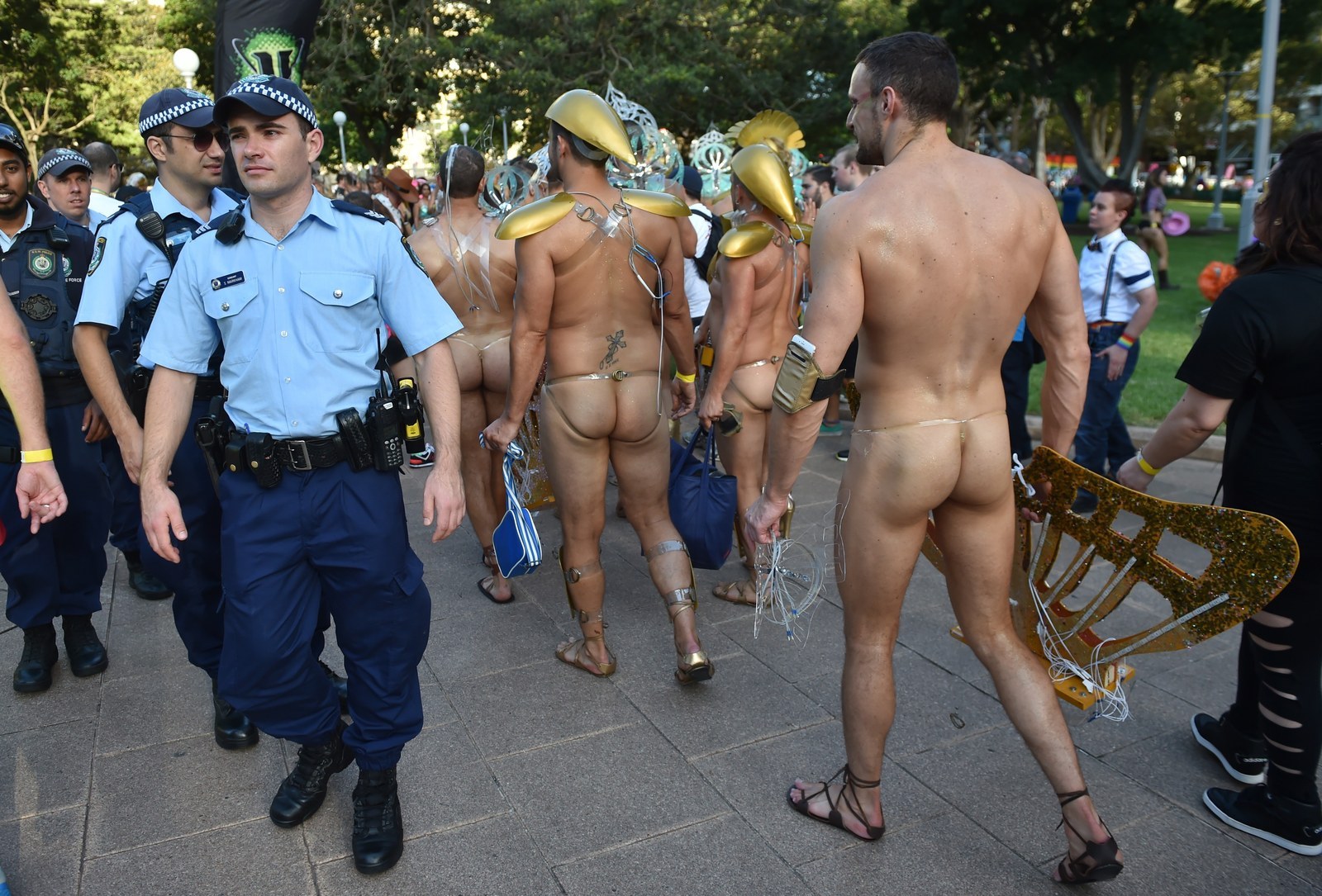
Nile also objects to “nudity and blasphemy” that he says makes up so much of the march, and argues police should uphold the same standards they would uphold on the other 364 nights of the year.
Nile claims police have told him that on any other night, many marchers would be fined for the way they’re dressed, but on Mardi Gras they get a free pass.
“Every group in society has a right in a democracy, if they wish to have a march or a parade… as long as they uphold the community standards and the state law as to what can happen on the public streets of Sydney.”
On that front, Nile isn't alone. Last year, a widely-shared piece written by gay Sydney journalist Gavin Fernando, said the parade made him less proud to be a gay man.
"I don’t understand the abundance of glitter. I don’t understand the hairy near-naked blokes grinding and wrestling in crotch-tight spandex at Fair Day, or swinging on float poles. I don’t understand the undeniable fact that sex — glorious as it is — is everywhere you look, walk and breathe. I mainly don’t understand the implication that I’m automatically connected to this display by means of my sexual orientation," he wrote.
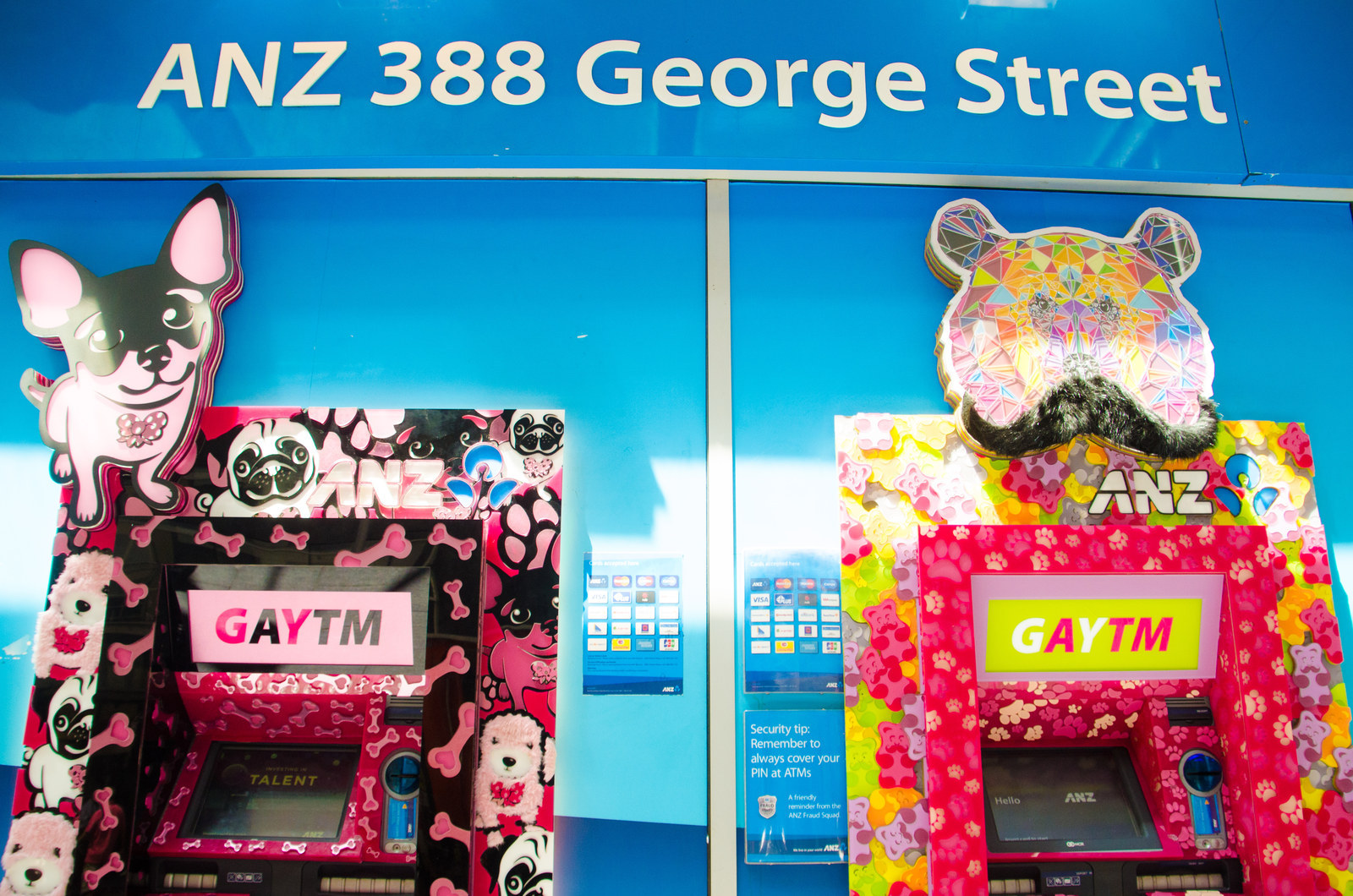
Arguments against the parade's commercialism haven't gone away either. Among the sponsors this year will be the ANZ bank, Facebook and the state of NSW. It’s a long way from the radical queer activists marching simply to be recognised as human beings.
Today, activists say the sponsorship is nice, but it shouldn’t be used to turn the focus of Mardi Gras away from important issues.
“We're talking about multinational corporations who do big business with a lot of other countries around the world that are not LGBTI supportive, or more than that they're actually openly discriminatory if not violent," Nic Holas, a queer activist and writer, wrote for Fairfax last year.
"It's all very good to say 'yes, we're inclusive and yes we're pro marriage equality and we love the gays' but if they're directly profiting off work with other nations that are doing the exact opposite that's pink washing. Marketing is effective when it comes to making corporates appear more human but the profit will always drive the decision-making process.”
All these factors have combined to give Mardi Gras something of an identity crisis. What is Mardi Gras in 2016? Given the significant advances in LGBT rights since 1978, is there really much left worth fighting for?
In 2016, some of the loudest messages will be coming from transgender Australians, their families and friends.
Marching for the first time will be Lisa Cuda, the mother of a transgender son.
"I’m marching to show that I don’t just have a transgender child, but I celebrate that child, I completely support them. I think Mardi Gras is a real celebration of diversity, and I really want that to be out in the public," she says.
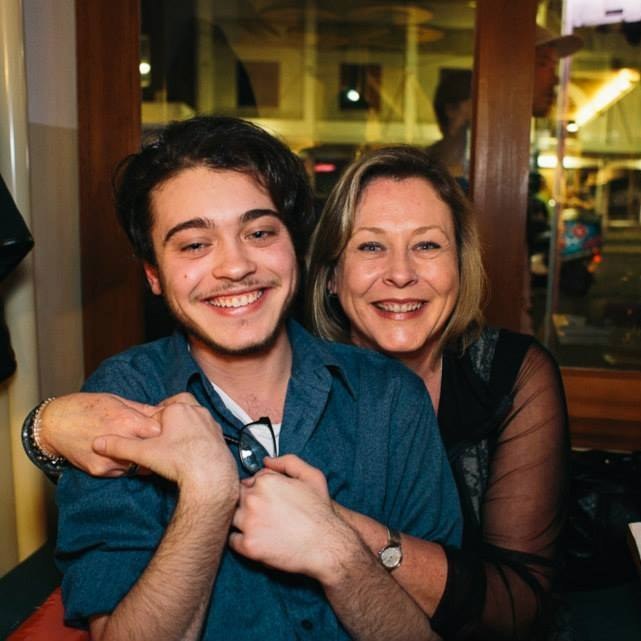
To critics who say Mardi Gras is no longer relevant as a political movement in 2016, Lisa says for her and her son, the battle is just beginning. She wants the world to know that trans Australians are still fighting for basic rights, like the ability to change a birth certificate or gain access to vital medical services.
"It’s really important that we are visual, for the basic fact that we have been locked in basements and closets for too many generations, and now we’re not prepared to take a backseat in life," she says. "It sends a very important message to the next generation that there are people in the community who are like them and are visible, and celebrated and proud."
Another float making its way up Oxford Street is the No Pride In Detention float.
Lead organiser Evan van Zijl told BuzzFeed News the float is designed to keep the political spirit of Mardi Gras alive.
“There’s this huge radical history that’s contesting the idea that homophobia is something that’s allowed to happen. We’re reclaiming space, challenging society using the concept of pride.”
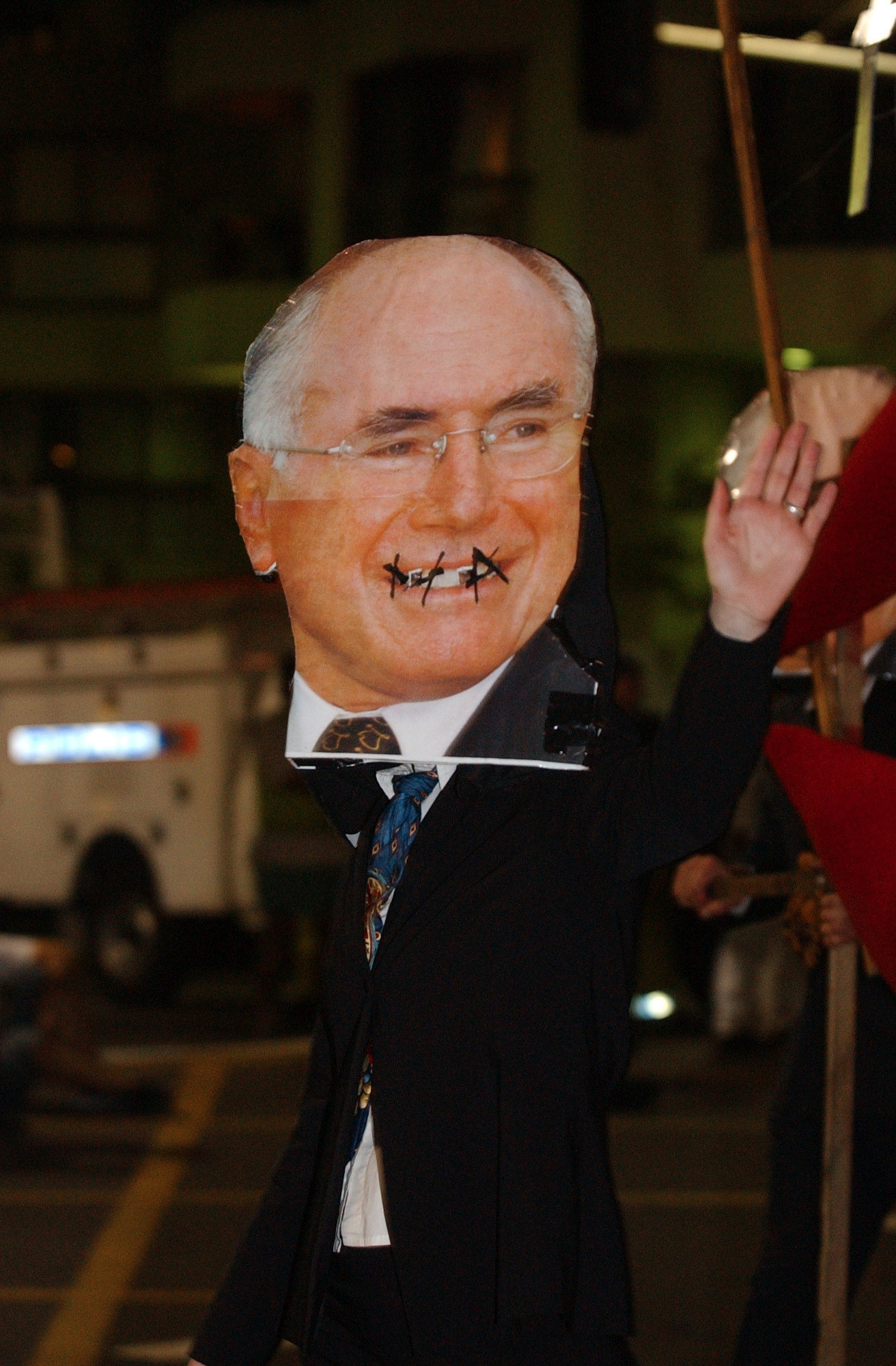
A joint project from the Refugee Action Coalition, Community Action Against Homophobia and the Riff Raff Marching Band, the float intends to project the message that Australian asylum seeker policy is an explicitly queer issue.
“When we say ‘They will never be settled here’, what that means is settling them in PNG – where homosexuality is criminalised,” said van Zijl. “It’s time we stop assuming people on the ground are dumb, or don’t care, or are middle of the road. They’re not. They want change.”
Marching alongside Lisa and Evan this year will be Sandy. After avoiding the parade almost every year since 1978, she says she's realised that to be involved and send a message is more important than ever.
"I’ve come to realise that being out and speaking up is actually some incentive to younger people," she says. "The thing that I think is a positive now is that Mardi Gras is aimed at people right across the board. It’s not aimed at the educated, it’s got working class roots. They’re there in their thousands."
"Also, the different work groups like the police are there. And that is good. Not that I will ever forget my memory about the police. I’ll never forgive being bashed the way I was. However, I’ve realised too that times have changed. We are hopefully moving forward. There is still homophobia and bullying in workplaces. There are high rates of suicide, a lot of them young gay people in country and regional areas."
As Sandy discusses the big issues that face the LGBT community today, there's still a hint of the queer revolutionary who took on police way back in 1978.
"Gay marriage is obviously what people are wanting at the moment. I’m not a strong supporter of gay marriage, because I believe it’s just sort of replicating heterosexual behaviour and that we never, ever really wanted that."
"I never really wanted to be the same as everyone else. I just wanted to have our rights."

